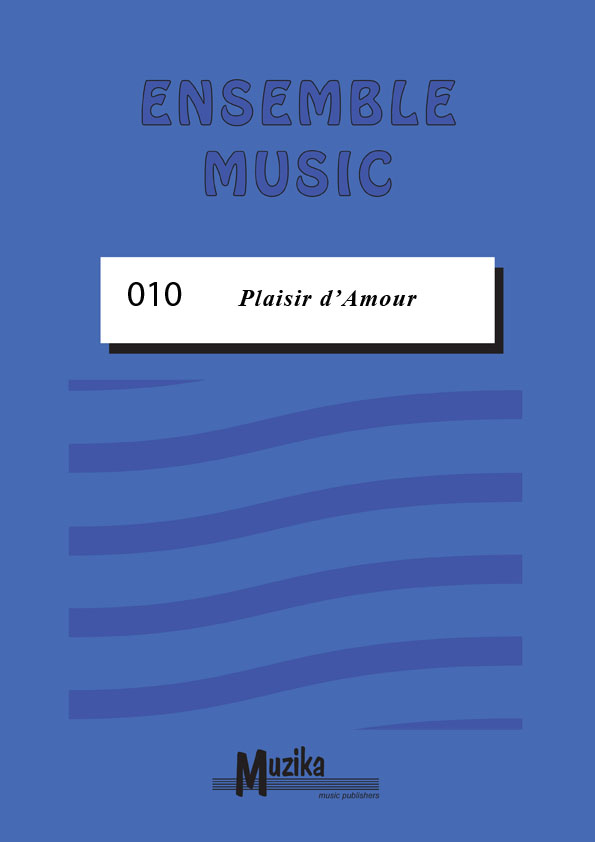Plaisir d'Amour
Buy this item (in stock)
Product ID: MZ3 EM010
By Jean Paul Égide Martini
published: 1780
Publisher:
Muzika
Arranger:
Van de Goot
Series:
Ensemble Music
Line Up:
Flexible Instrumentation
Duration:
3:30
Level: 2
Set & Score
This item is in stock
Instrumentation
1 Score
1 Piano
4 Part 1 in C treble clef
2 Part 1 in Bb treble clef
4 Part 2 in C treble clef
4 Part 2 in Bb treble clef
6 Part 3 in C treble clef
4 Part 3 in Bb treble clef
1 Part 3 in Eb treble clef
1 Part 3 in F treble clef
3 Part 4 in C alto clef
2 Part 4 in Bb low treble clef
1 Part 4 in Bb high treble clef
2 Part 4 in Eb treble clef
2 Part 4 in F treble clef
2 Part 5 in C bass clef
2 Part 5 in Bb bass clef
Reviews and rating
No review available, be the first to write one!

Composer
Jean Paul Égide Martini
Jean Paul Egide Martini, (August 31, 1741 – February 10, 1816) was a composer of classical music. Sometimes known as Martini Il Tedesco, he is best known today for the vocal romance "Plaisir d'Amour," on which the 1961 Elvis Presley standard "Can't Help Falling in Love" is based. He is sometimes referred to as Giovanni Martini, which has resulted in a confusion with Giovanni Battista Martini, particularly with regard to the composition Plaisir d'Amour.
Martini was born Johann Paul Aegidius Schwarzendorf in Freystadt, Bavaria. He adopted the family name Martini after moving to France as a young man. There, he established a successful career as a court musician. Having directed concerts for the Queen he adapted to the changing regimes throughout the French Revolution, and later wrote music for Napoleon's marriage as well as for the restored Royal Chapel. In 1764, he married Marguerite Camelot. His melodic opera L'amoureux de quinze ans written in 1771 enjoyed great success. In addition, his highly popular church music combined old forms with modern theatricality, and his chansons including "Plaisir D'Amour" were influential. In 1800 he became professor of composition at the Paris Conservatoire. He died in Paris in February of 1816.
More info about the composer...



 Click above to view samples
Click above to view samples
